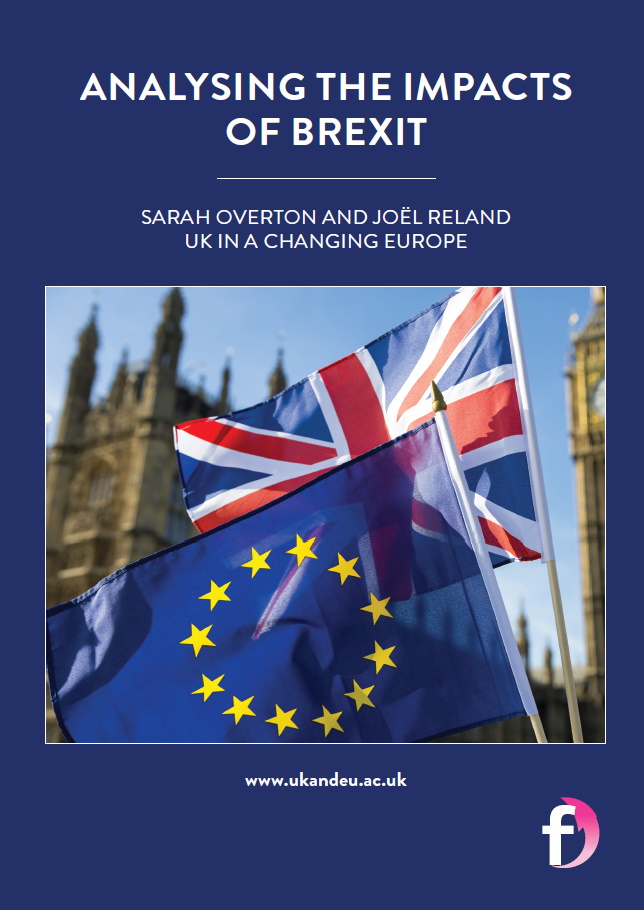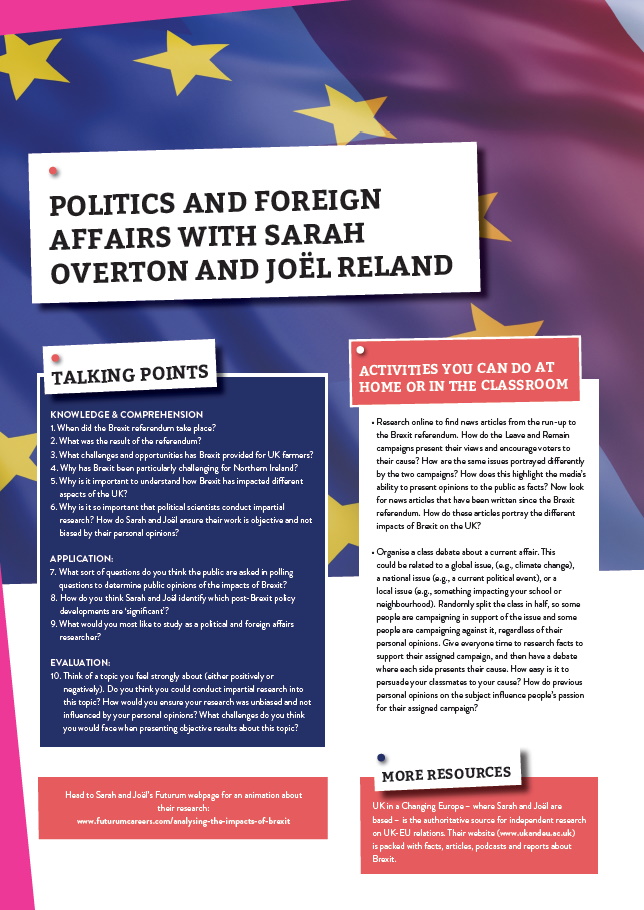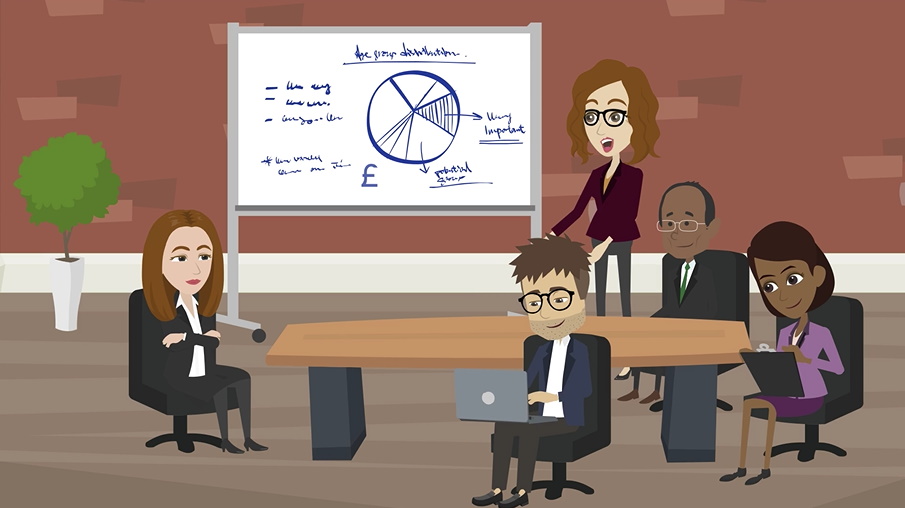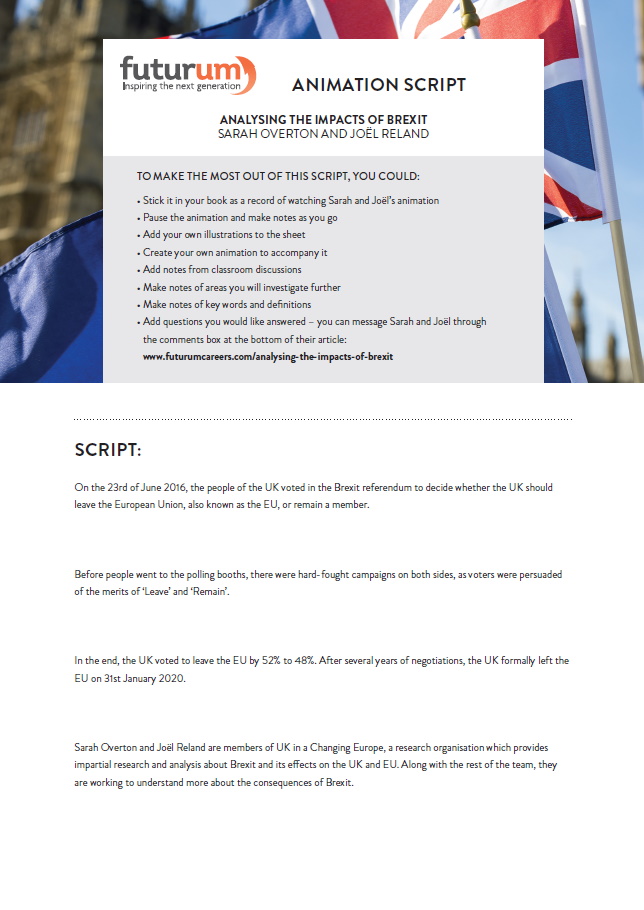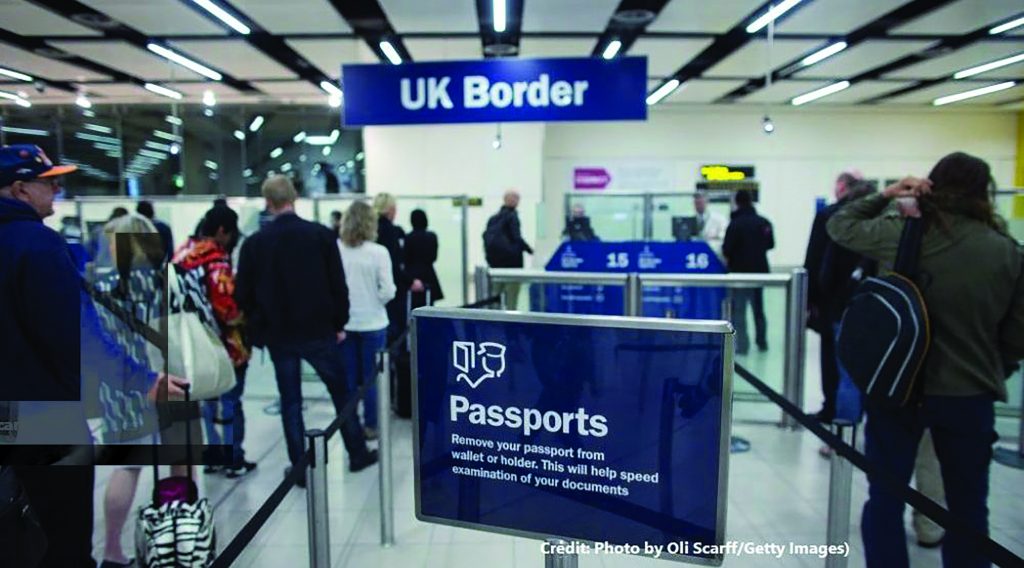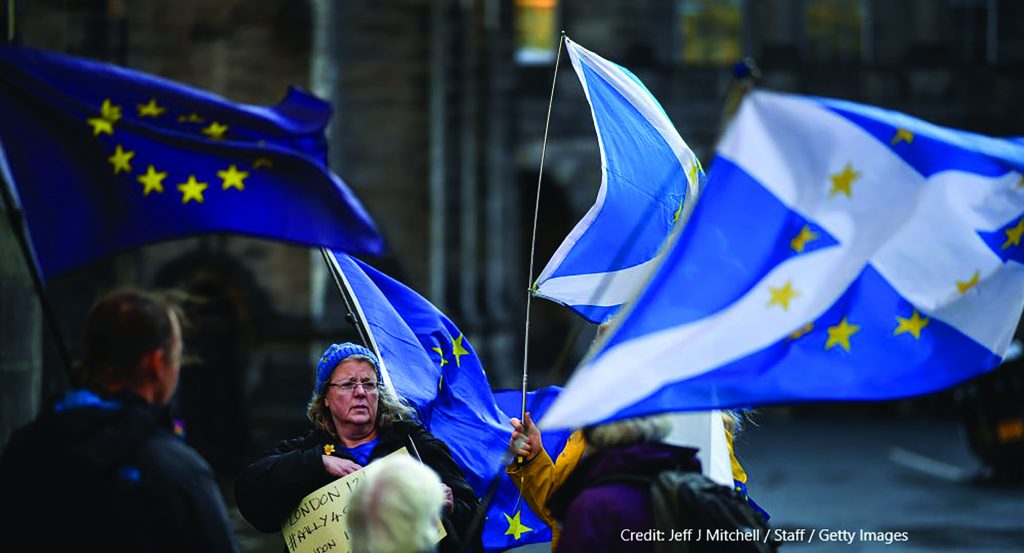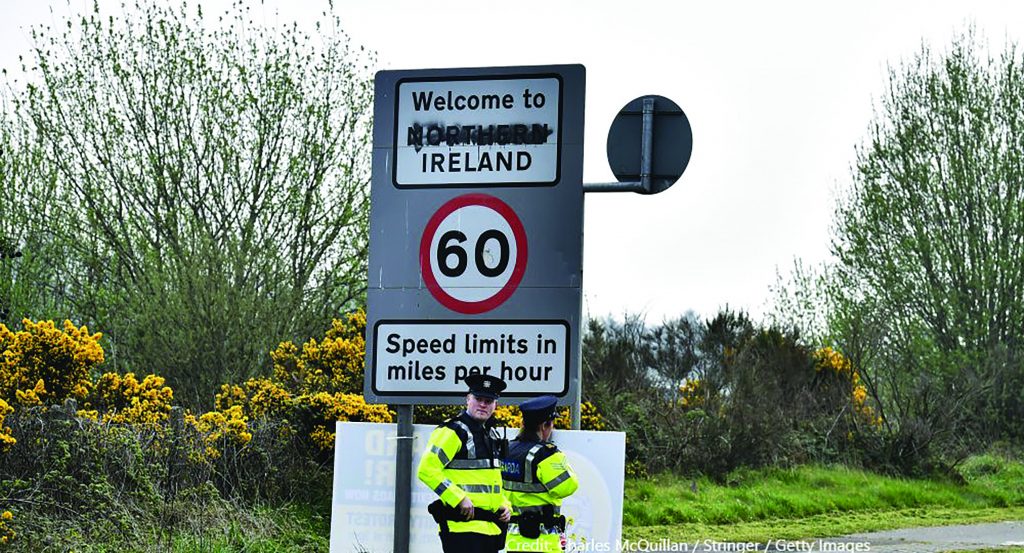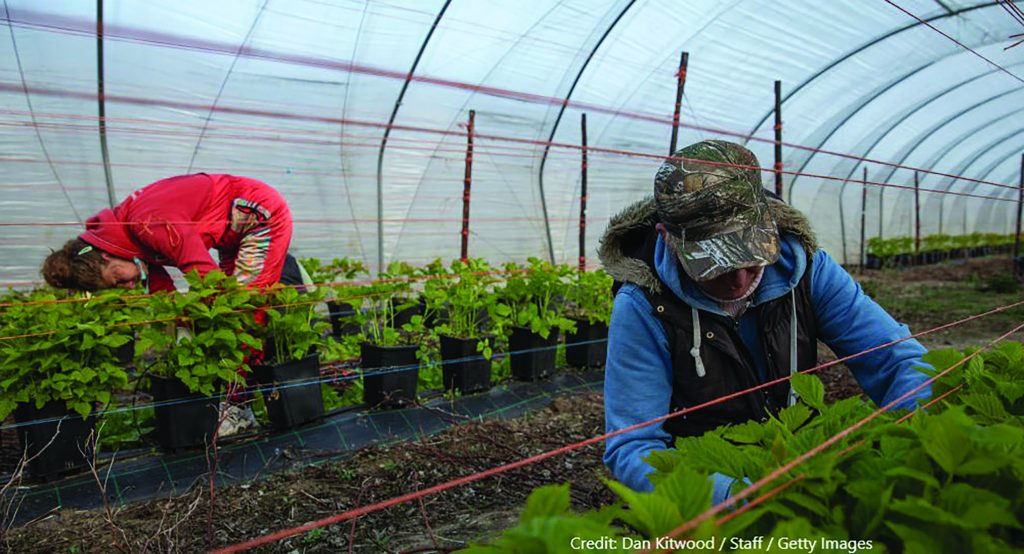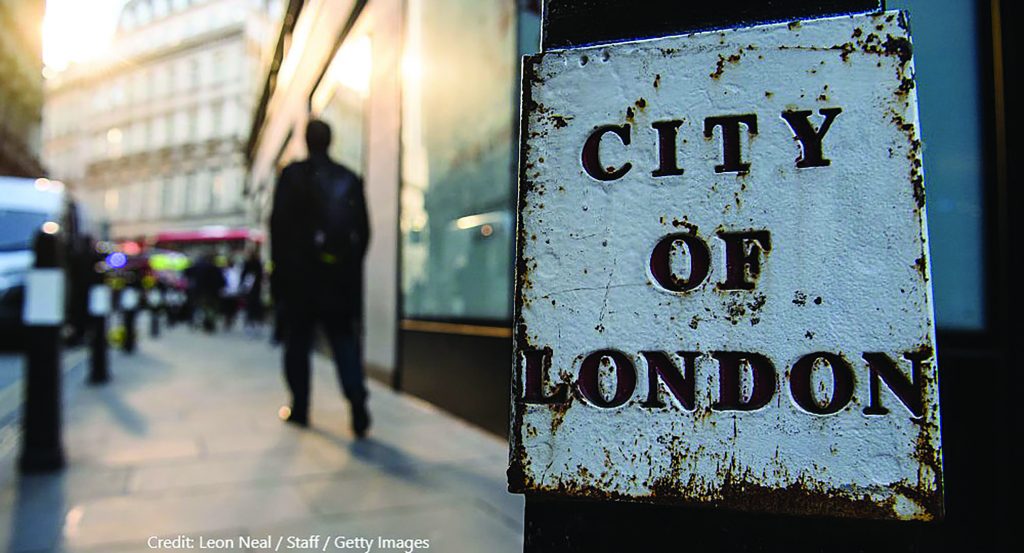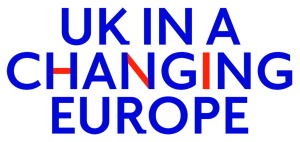Analysing the impacts of Brexit
Sarah Overton and Joël Reland form part of UK in a Changing Europe, a research organisation based at King’s College London, UK, which provides impartial research and analysis about Brexit and its effects on the UK and EU.
TALK LIKE A POLITICAL SCIENTIST
BREXIT – the name given to the UK withdrawal from the EU
EUROPEAN UNION (EU) – an economic and political partnership of 27 European countries that share laws in many areas. These include the ability of citizens to freely travel and work in different member countries and the ability of member countries to freely trade with each other
LEAVE – the campaign for the UK to leave the EU
REFERENDUM – a public vote on a single political question. In the Brexit referendum, voters were asked ‘Should the United Kingdom remain a member of the European Union or leave the European Union?’
REMAIN – the campaign for the UK to remain in the EU
THINK TANK – a group outside the government which makes policy proposals
UNITED KINGDOM (UK) – the union of England, Scotland, Wales and Northern Ireland
In recent years, the world seems to have become increasingly divided. Brexit is a prime example of this, as the UK was split 52:48 on whether the UK should leave the European Union (EU) or remain a member.
The Brexit referendum took place on 23rd June 2016, but before people went to the polling booths, there were hard-fought campaigns on both sides from politicians, influential people and organisations who tried to persuade voters of the merits of ‘Leave’ or ‘Remain’. Contradictory claims about the consequences of the two possible outcomes were made, which were often difficult to verify but impossible to ignore. Remain campaigners claimed 820,000 jobs would be lost if the UK left the EU, while Leave campaigners claimed leaving would allow £350 million a week to be spent on the NHS. A heavily contested campaign ended with a very close result: the UK voted to leave the EU by 51.9% to 48.1%.
After several years of negotiations, the UK formally left the EU. Exit was completed on 31st December 2020 when the 11-month transition period ended. So, what have the impacts of Brexit been? Sarah Overton and Joël Reland, from the UK in a Changing Europe think tank based at King’s College London, are looking into this.
EVALUATING THE IMPACTS OF BREXIT
UK in a Changing Europe provides impartial research and analysis about Brexit and its effects on the UK and EU. Sarah, Joël and the rest of the team are working to understand more about the consequences of Brexit. “There’s no exact science for evaluating the impacts of Brexit,” says Sarah, “but we commonly use methods of data analysis.” For example, Sarah and Joël have compared official statistics from the UK and EU about the labour market and other aspects of the UK economy to investigate issues such as wage growth and inflation since Brexit. They also regularly analyse polling data to understand how the public views the impacts of Brexit.
As such a vast topic, studying the impacts of Brexit is challenging. “There is an almost endless range of policy areas which could be affected by Brexit,” says Joël. So, the team must go through policy documents, websites and press releases, identifying which policy changes and developments are significant. But, even this does not give a complete picture. Another challenge is that Leave voters wanted benefits such as ‘control’ and sovereignty, which are not measurable in a physical sense and so are hard to quantify.
It transpires that a number of the pre-Brexit claims made by the Leave and Remain campaigns were unfounded. The prediction of 820,000 jobs being lost due to Brexit has not been borne out. And the NHS is not receiving £350 million more a week now that the UK is no longer in the EU (this particular claim was found to be a ‘clear misuse of official statistics’). These examples highlight how both campaigns used (or in some cases, misused) statistics to persuade voters.
IMPACTS ON THE UNION
The UK is a union of four nations and Brexit is having consequences on this union. The referendum was decided on the basis of the total vote across the whole UK, but there were significant differences in the way different parts of the UK voted. In Scotland, 62% of those who voted in the referendum voted to remain. And polling since the referendum suggests that, on the whole, Scots think the consequences of Brexit have been negative. “The Scottish National Party is now advocating another Scottish independence referendum,” explains Sarah, “arguing that Brexit has changed the terms of Scotland’s place in the UK.”
In Northern Ireland, the majority of voters also voted to remain. “How to keep the Irish border open was probably the most difficult question of UK-EU negotiations,” says Joël. “It was agreed early on that the border had to be kept open to preserve political stability between Northern Ireland and the Republic of Ireland.” This has been achieved by keeping Northern Ireland aligned with many EU laws, in an attempt to keep a free flow of trade across the Irish border. But this has practical and political consequences. Checks are now required on many goods crossing from Great Britain into Northern Ireland, resulting in some disruption to trade. “Politically, this is very difficult for the Unionist community in Northern Ireland, whose political identity is inextricably bound up in the idea that they are part of the UK, not Ireland,” says Joël. “The fact that Northern Ireland now follows some different laws to the rest of the UK is challenging to this sense of connection.” In contrast, this fractured connection with the rest of the UK is politically advantageous for the Nationalist community, as the issues caused by Brexit seem to be increasing support for the reunification of Northern Ireland with the Republic of Ireland.
IMPACTS ON EU CITIZENS LIVING IN THE UK
“Ending free movement between the UK and the EU was a priority for many Brexit supporters,” says Sarah. Yet many EU citizens live, work and study in the UK, while many UK citizens live, work and study in the EU. “The UK government had promised that EU nationals would be automatically granted indefinite leave to remain and lose none of their existing rights. However, these commitments were not delivered.”
With no official database of foreign nationals living in the UK, the authorities had no way of telling who had the right to stay in the UK, and who did not. To solve this, the EU Settlement Scheme was launched, enabling EU citizens living in the UK to apply for ‘settled status’. But this must be done online, meaning elderly people and those from vulnerable groups (such as those who are homeless or experiencing mental health issues) are underrepresented in applications.
IMPACTS ON OTHER SECTORS
Before Brexit, EU citizens made up the majority of temporary workers on British farms during the harvest season. Brexit has made it harder for EU seasonal agricultural workers to come to the UK, meaning that in recent years, some crops have been left to rot in their fields as there are not enough workers to harvest them. Under EU law, British farmers could receive financial support from various schemes. Without these payments, some livestock farmers may lose 60-80% of their income. Yet these EU subsidies favoured large landowners and had negative impacts on smaller farms, and so Brexit has provided opportunities for farming reform in the UK.
Reference
https://doi.org/10.33424/FUTURUM252
BREXIT – the name given to the UK withdrawal from the EU
EUROPEAN UNION (EU) – an economic and political partnership of 27 European countries that share laws in many areas. These include the ability of citizens to freely travel and work in different member countries and the ability of member countries to freely trade with each other
LEAVE – the campaign for the UK to leave the EU
REFERENDUM – a public vote on a single political question. In the Brexit referendum, voters were asked ‘Should the United Kingdom remain a member of the European Union or leave the European Union?’
REMAIN – the campaign for the UK to remain in the EU
THINK TANK – a group outside the government which makes policy proposals
UNITED KINGDOM (UK) – the union of England, Scotland, Wales and Northern Ireland
In recent years, the world seems to have become increasingly divided. Brexit is a prime example of this, as the UK was split 52:48 on whether the UK should leave the European Union (EU) or remain a member.
The Brexit referendum took place on 23rd June 2016, but before people went to the polling booths, there were hard-fought campaigns on both sides from politicians, influential people and organisations who tried to persuade voters of the merits of ‘Leave’ or ‘Remain’. Contradictory claims about the consequences of the two possible outcomes were made, which were often difficult to verify but impossible to ignore. Remain campaigners claimed 820,000 jobs would be lost if the UK left the EU, while Leave campaigners claimed leaving would allow £350 million a week to be spent on the NHS. A heavily contested campaign ended with a very close result: the UK voted to leave the EU by 51.9% to 48.1%.
After several years of negotiations, the UK formally left the EU. Exit was completed on 31st December 2020 when the 11-month transition period ended. So, what have the impacts of Brexit been? Sarah Overton and Joël Reland, from the UK in a Changing Europe think tank based at King’s College London, are looking into this.
EVALUATING THE IMPACTS OF BREXIT
UK in a Changing Europe provides impartial research and analysis about Brexit and its effects on the UK and EU. Sarah, Joël and the rest of the team are working to understand more about the consequences of Brexit. “There’s no exact science for evaluating the impacts of Brexit,” says Sarah, “but we commonly use methods of data analysis.” For example, Sarah and Joël have compared official statistics from the UK and EU about the labour market and other aspects of the UK economy to investigate issues such as wage growth and inflation since Brexit. They also regularly analyse polling data to understand how the public views the impacts of Brexit.
As such a vast topic, studying the impacts of Brexit is challenging. “There is an almost endless range of policy areas which could be affected by Brexit,” says Joël. So, the team must go through policy documents, websites and press releases, identifying which policy changes and developments are significant. But, even this does not give a complete picture. Another challenge is that Leave voters wanted benefits such as ‘control’ and sovereignty, which are not measurable in a physical sense and so are hard to quantify.
It transpires that a number of the pre-Brexit claims made by the Leave and Remain campaigns were unfounded. The prediction of 820,000 jobs being lost due to Brexit has not been borne out. And the NHS is not receiving £350 million more a week now that the UK is no longer in the EU (this particular claim was found to be a ‘clear misuse of official statistics’). These examples highlight how both campaigns used (or in some cases, misused) statistics to persuade voters.
IMPACTS ON THE UNION
The UK is a union of four nations and Brexit is having consequences on this union. The referendum was decided on the basis of the total vote across the whole UK, but there were significant differences in the way different parts of the UK voted. In Scotland, 62% of those who voted in the referendum voted to remain. And polling since the referendum suggests that, on the whole, Scots think the consequences of Brexit have been negative. “The Scottish National Party is now advocating another Scottish independence referendum,” explains Sarah, “arguing that Brexit has changed the terms of Scotland’s place in the UK.”
In Northern Ireland, the majority of voters also voted to remain. “How to keep the Irish border open was probably the most difficult question of UK-EU negotiations,” says Joël. “It was agreed early on that the border had to be kept open to preserve political stability between Northern Ireland and the Republic of Ireland.” This has been achieved by keeping Northern Ireland aligned with many EU laws, in an attempt to keep a free flow of trade across the Irish border. But this has practical and political consequences. Checks are now required on many goods crossing from Great Britain into Northern Ireland, resulting in some disruption to trade. “Politically, this is very difficult for the Unionist community in Northern Ireland, whose political identity is inextricably bound up in the idea that they are part of the UK, not Ireland,” says Joël. “The fact that Northern Ireland now follows some different laws to the rest of the UK is challenging to this sense of connection.” In contrast, this fractured connection with the rest of the UK is politically advantageous for the Nationalist community, as the issues caused by Brexit seem to be increasing support for the reunification of Northern Ireland with the Republic of Ireland.
IMPACTS ON EU CITIZENS LIVING IN THE UK
“Ending free movement between the UK and the EU was a priority for many Brexit supporters,” says Sarah. Yet many EU citizens live, work and study in the UK, while many UK citizens live, work and study in the EU. “The UK government had promised that EU nationals would be automatically granted indefinite leave to remain and lose none of their existing rights. However, these commitments were not delivered.”
With no official database of foreign nationals living in the UK, the authorities had no way of telling who had the right to stay in the UK, and who did not. To solve this, the EU Settlement Scheme was launched, enabling EU citizens living in the UK to apply for ‘settled status’. But this must be done online, meaning elderly people and those from vulnerable groups (such as those who are homeless or experiencing mental health issues) are underrepresented in applications.
IMPACTS ON OTHER SECTORS
Before Brexit, EU citizens made up the majority of temporary workers on British farms during the harvest season. Brexit has made it harder for EU seasonal agricultural workers to come to the UK, meaning that in recent years, some crops have been left to rot in their fields as there are not enough workers to harvest them. Under EU law, British farmers could receive financial support from various schemes. Without these payments, some livestock farmers may lose 60-80% of their income. Yet these EU subsidies favoured large landowners and had negative impacts on smaller farms, and so Brexit has provided opportunities for farming reform in the UK.
“UK universities and colleges have a long history of collaborating closely with those in other European states on both education and research,” says Joël. However, following Brexit, the UK is no longer participating in the Erasmus programme, which enabled students to study abroad on exchange placements around the EU, and the number of EU students enrolling at UK universities has halved. It has instead set up its own replacement ‘Turing Scheme’, which offers more placements overall but with less generous funding.
Some have argued that, as a result of Brexit, the UK has regained a degree of sovereignty from the EU. The UK now has more freedom to make its own decisions and set its own regulations. We will see the country try to take advantage of this new independence as it moves forward.
The impacts of Brexit will continue to unfold with time, and there is still much we do not yet know about how this momentous political event will affect the lives and livelihoods of those living in the UK and EU. Political researchers like Sarah and Joël are therefore essential for ensuring thorough and impartial analysis is conducted into political topics such as Brexit.
 Sarah Overton
Sarah Overton
Joël Reland
UK in a Changing Europe
King’s College London, UK
FIELD OF RESEARCH: Politics and Foreign Affairs
RESEARCH PROJECT: Providing impartial research about Brexit and its impact on the UK and EU
FUNDER: Economic and Social Research Council (ESRC)
 Sarah Overton
Sarah OvertonJoël Reland
UK in a Changing Europe
King’s College London, UK
FIELD OF RESEARCH: Politics and Foreign Affairs
RESEARCH PROJECT: Providing impartial research about Brexit and its impact on the UK and EU
FUNDER: Economic and Social Research Council (ESRC)
ABOUT POLITICS AND FOREIGN AFFAIRS
Politics and foreign affairs encompasses a wide range of different topics relating to domestic and foreign political activities. Political scientists may work as researchers, like Sarah and Joël, investigating how national and international governments and policies influence political landscapes. Or they may work as political forecasters, trying to determine what the outcomes of political decisions or elections will be, based on past political events.
As the topic of Brexit has highlighted, politics can be very divisive. So, it is very important that researchers such as Sarah and Joël remain impartial and conduct their research objectively and without prejudice.
WHAT DO POLITICAL SCIENTISTS DO?
There is no such thing as a typical day for a political scientist! The nature of the field means that researchers are constantly updating their topics of investigation as current affairs develop. Daily tasks include researching current political activities, writing articles about political issues, and planning and coordinating long-term projects. Sarah and Joël regularly interview politicians and government officials for the UK in a Changing Europe Brexit Witness Archive (www.ukandeu.ac.uk/brexit-witness-archive), to provide a record of the experiences of those who have shaped the Brexit process. They also monitor the impacts of Brexit in close to real time through the UK in a Changing Europe regulatory divergence tracker (www.ukandeu.ac.uk/research-papers/uk-eu-regulatory-divergence-tracker).
Political scientists study topics ranging from how parliaments and governments work, to political parties’ campaigns, to public attitudes on political topics, and more. “Political scientists evaluate problems,” says Sarah. “Research may involve conducting interviews and focus groups or analysing qualitative and quantitative data.”
WHAT WILL THE NEXT GENERATION OF BREXIT RESEARCHERS INVESTIGATE?
“There’s still a lot of work to do monitoring, analysing and evaluating the impacts of Brexit on the UK and on its relations with other countries,” explains Joël. “The UK-EU relationship will continue to develop, so we expect future researchers will be thinking about the implications of that relationship and how it might continue to change going forward.”
EXPLORE A CAREER IN POLITICS AND FOREIGN AFFAIRS
• Joining a politics or debating society at school or university is a great way to build political knowledge and meet others who share similar interests. Sarah also recommends joining campaigns on issues you are passionate about.
• For the latest analysis of current affairs, Joël suggests checking think tank websites and subscribing to current affairs newsletters. Visit the UK in a Changing Europe website to learn more about the range of research the group conducts: www.ukandeu.ac.uk
• Prospects provides information about what you can do with a degree in politics (www.prospects.ac.uk/careers-advice/what-can-i-do-with-my-degree/politics) or international relations (www.prospects.ac.uk/careers-advice/what-can-i-do-with-my-degree/international-relations).
• If you are interested in a career in politics and foreign affairs then history, geography, economics and foreign languages will be useful subjects to study at school. “But really, there is no set selection of subjects that you need to take in order to go into this field,” says Sarah, “as any subject can be relevant to politics and foreign affairs.”
• Most universities offer degrees in politics and/or international relations. But again, any degree could lead you to a career in the field. “Having people who have studied a wide range of subjects in politics and foreign affairs jobs is really valuable,” explains Joël.
HOW DID SARAH BECOME A POLITICAL SCIENTIST?
I grew up in Nepal and India so from a young age developed an international perspective. This grew over time into an interest to work in politics and international relations.
I worked in the UK Parliament at a time when there were a lot of Brexit developments happening. This work involved analysing legislation, monitoring parliamentary business, briefing MPs and helping with policy matters. I focused specifically on UK-EU relations, foreign affairs, home affairs and justice.
Working in Parliament definitely influenced my decision to become a political researcher and to focus on UK-EU relations and the impacts of Brexit. I found it very interesting to be doing research on different topics as they were developing.
I aim to be evidence-led in my research, focusing on the findings that emerge in the data, so I don’t find it too hard to remain impartial in research outputs. It’s always good to be aware of your own biases during the process.
Outside of work, I enjoy spending time with family and friends, reading, watching films, running, exploring London and travelling.
HOW DID JOËL BECOME A POLITICAL SCIENTIST?
I’d love to say I had a range of interests from a young age but really, I was just obsessed with football! However, my desire to watch any match on TV did give me an appreciation of the niche realms of the European continent. Over time, my obsessive nature translated into memorising maps, flags and capital cities, which earned me the nickname ‘Atlas Boy’ at school. I suppose that interest in countries and how they all stitch together has fed into my interest in international politics.
Sometimes it can be hard to remain impartial when investigating such a divisive and polarising political topic, especially when the issues at stake are ones that directly affect you or your family. But I don’t think that’s necessarily a problem. It’s important to be aware of your own (and other people’s) biases to either keep them out of the research, or to contextualise them within the research. After all, politics (and certainly Brexit) is a subject driven by emotion as much as reason and we should always be mindful of that.
When you study something that has dominated the news for years, it is important to switch off from work. I don’t go on Twitter outside of work hours and always turn email notifications off on my phone. I think this should apply even if your topic is less sensationalistic than Brexit – I find it invaluable to be able to compartmentalise work time from leisure time.
SARAH AND JOËL’S TOP TIPS
01 Follow what makes you tick. You’ll enjoy something more, and likely be better at what you do, if it is something you care about.
02 Surround yourself with people who support you and give constructive advice. Having a mentor who is a bit further along in their career can be really helpful.
03 Never be afraid to project personality into what you do. When you do research, it is very much your own domain and you will have a unique blend of perspectives and skills – this is what makes your research distinctive and interesting.
04 Take opportunities that come your way. Use them to build up a network of contacts, as well as gaining useful skills and experience.
Do you have a question for Sarah or Joël?
Write it in the comments box below and Sarah or Joël will get back to you. (Remember, researchers are very busy people, so you may have to wait a few days.)

